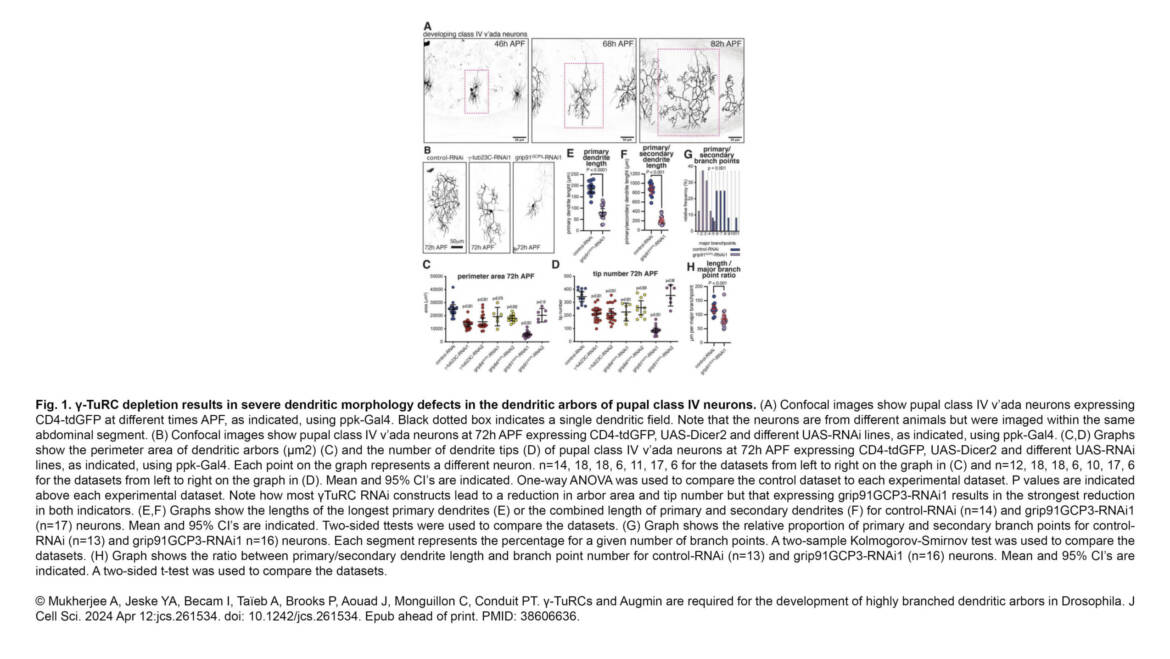L’équipe Conduit a publié un nouvel article dans Journal of Cell Science :
Résumé :
Microtubules are nucleated by γ-tubulin ring complexes (γ-TuRCs) and are essential for neuronal development. Nevertheless, γ-TuRC depletion has been reported to perturb only higher-order branching in elaborated Drosophila larval class IV dendritic arborisation (da) neurons. This relatively mild phenotype was attributed to defects in microtubule nucleation from Golgi outposts, yet most Golgi outposts lack associated γ-TuRCs. By analysing dendritic arbor regrowth in pupae, we show that γ-TuRCs are also required for the growth and branching of primary and secondary dendrites, as well as for higher-order branching. Moreover, we identify the Augmin complex, which recruits γ-TuRCs to the sides of pre-existing microtubules, as being required predominantly for higher-order branching, likely by increasing the frequency of microtubule growth in terminal dendrites. Consistently, we find that Augmin is expressed less strongly and is largely dispensable in larval class I da neurons, which exhibit few higher-order dendrites. Thus, γ-TuRCs are essential for various aspects of complex dendritic arbor development, and they appear to function in higher-order branching via the Augmin pathway, which promotes the elaboration of dendritic arbors to help define neuronal morphology.


